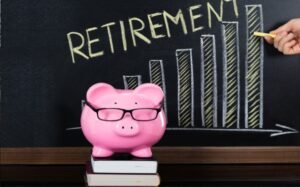The Uengine: effect of the increase in social security’s full retirement age on unemployment among older adults
In the 1980s, Congress decided to slowly raise the Full Retirement Age (FRA) for Social Security from 65 to 67. That change is now in full effect for anyone born in 1960 or later. Many people assumed this would simply make seniors work two extra years and then retire happily. New research shows something different: it’s actually increasing unemployment among older adults, especially in the years right before they can claim full benefits.
Here’s the simple truth — when people can’t get their full Social Security check until 66, 67, or even later, most try to keep working. But not everyone can. Health problems, layoffs, age discrimination, and physically demanding jobs force many out of work earlier than planned. These older workers then spend months — sometimes years — unemployed while waiting to reach their new, higher retirement age.
What Is Full Retirement Age and How Has It Changed?
Full Retirement Age (FRA) is the age at which you can receive 100% of your Social Security retirement benefit.
| Birth Year | Full Retirement Age |
|---|---|
| 1937 and earlier | 65 |
| 1938–1954 | 66 (gradual increase) |
| 1955–1959 | 66 + 2–10 months |
| 1960 and later | 67 |
Because of this two-year increase, someone who planned to retire at 65 now gets only about 76–80% of their benefit if they claim early at 62, or they must keep working until 67 to get the full amount.
Why Does a Higher Retirement Age Increase Unemployment in Older Workers?
1. Many Jobs Are Physically Impossible After Age 60
Construction workers, nurses, factory employees, truck drivers — these jobs wear the body down. Studies show that 40–50% of workers in manual jobs report they cannot physically continue past age 62–63.
2. Age Discrimination Is Real
Research from the National Bureau of Economic Research found that résumés showing workers over 55 get 50% fewer callbacks than identical résumés with younger ages. Once laid off, older workers stay unemployed 10–20 weeks longer on average than younger ones.
3. Early Retirement Packages Have Disappeared
In the 1990s, companies offered generous early retirement deals. Today, most companies have eliminated pensions and early retirement incentives, leaving workers with only two choices: keep working or live on a reduced Social Security check.
4. Health Shocks Force People Out Early
About 1 in 4 workers between 55–64 experience a major health event (heart attack, cancer, stroke, severe arthritis) that ends their career earlier than planned. Without full Social Security until 67, these people fall into long-term unemployment.
What the Latest Studies Actually Show
A 2024 study published in the Journal of Public Economics looked at workers born just before and after the 1960 cutoff (66 vs. 67 FRA). Key findings:
- Unemployment rates for men aged 62–64 jumped almost 2 percentage points because of the higher FRA.
- The average duration of unemployment for older adults increased by 8–12 weeks.
- Workers in poor health or blue-collar jobs were hit the hardest.
- Women saw a smaller increase (about 1 percentage point) because many already left the workforce earlier for caregiving reasons.
Another 2025 Federal Reserve Bank analysis confirmed: every one-year increase in Full Retirement Age raises the unemployment rate of 62–64 year olds by roughly 1.2–1.8 percentage points.
Who Gets Hurt the Most?
| Group Most Affected | Why They’re Hit Hardest |
|---|---|
| Manual laborers | Can’t physically do the job past early 60s |
| Workers without college degrees | Fewer desk jobs available, more age discrimination |
| People with health problems/disabilities | Forced out early, but can’t claim full benefits yet |
| Minorities and low-wage workers | Less savings to bridge the gap, higher layoff rates |
Is There Any Good News?
Yes — for some people. Healthy professionals with desk jobs often love working until 67 or even 70 (they get an 8% bonus for every year they delay past FRA). But they are the minority. For the majority of Americans without a college degree or with physically demanding jobs, the higher retirement age simply means more months or years of unwanted unemployment.
Bottom Line: The Hidden Cost of “Fixing” Social Security
Raising the Full Retirement Age was sold as a painless way to keep Social Security solvent. In reality, it has quietly increased unemployment among older adults, pushed millions into poverty-level early benefits, and created a new group: the “almost retired” who are too young for full benefits but too old to easily find work.
If lawmakers decide to raise the retirement age even further (some proposals go to 68 or 69), expect older adult unemployment to rise even more.
For anyone between 55–64 right now, the message is clear: save more, stay as healthy as possible, and have a Plan B — because the government just moved your finish line two years farther away, and the job market isn’t always willing to let you run the extra distance.



